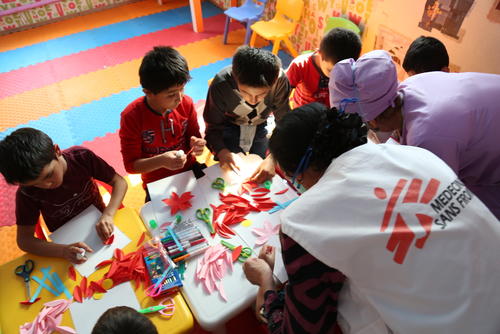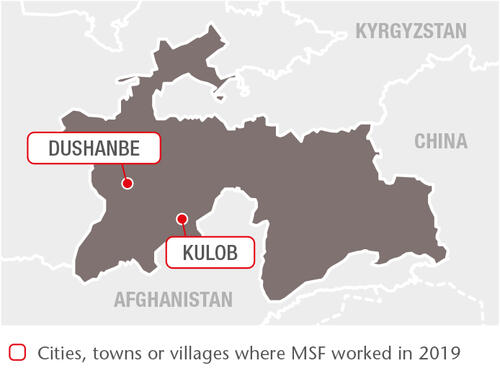
190
19
In Tajikistan, children are particularly vulnerable to TB, and paediatric forms of the disease are especially difficult to diagnose and treat. In Dushanbe, we support the Ministry of Health to provide paediatric and family TB care, focusing on drug-resistant TB (DR-TB).
Our innovative and person-centred model of care includes tracing and testing contacts, providing child-friendly formulations, implementing new drugs, shortened regimens, and strategies to improve adherence such as family-provided directly observed therapy, a practice whereby a family member watches the patient take each dose of their medication. In 2019, 40 of the 46 paediatric patients started on DR-TB treatment in Dushanbe benefited from injection-free regimens. The remaining six patients stopped injections within the first months of treatment to follow all-oral regimens. By the end of the year, 77 patients, including 49 children, three of whom were on treatment before 2019, were continuing with treatment. The majority (96 per cent) were being treated with newer drugs.
We plan to hand over our medical activities at the HIV project we run in Kulob district to the Ministry of Health by March 2020. The project successfully brought attention to paediatric HIV, especially nosocomial modes of transmission. In early 2019, 110,040 schoolchildren (or their parents) consented to HIV testing at schools in Dushanbe as well as Kulob. Twenty of the 80 newly identified patients were from Kulob and subsequently started antiretroviral treatment. MSF has implemented the practice of HIV status disclosure to the children and by the end of 2019, more than 80 per cent of the children in the cohort have had their status disclosed.

















